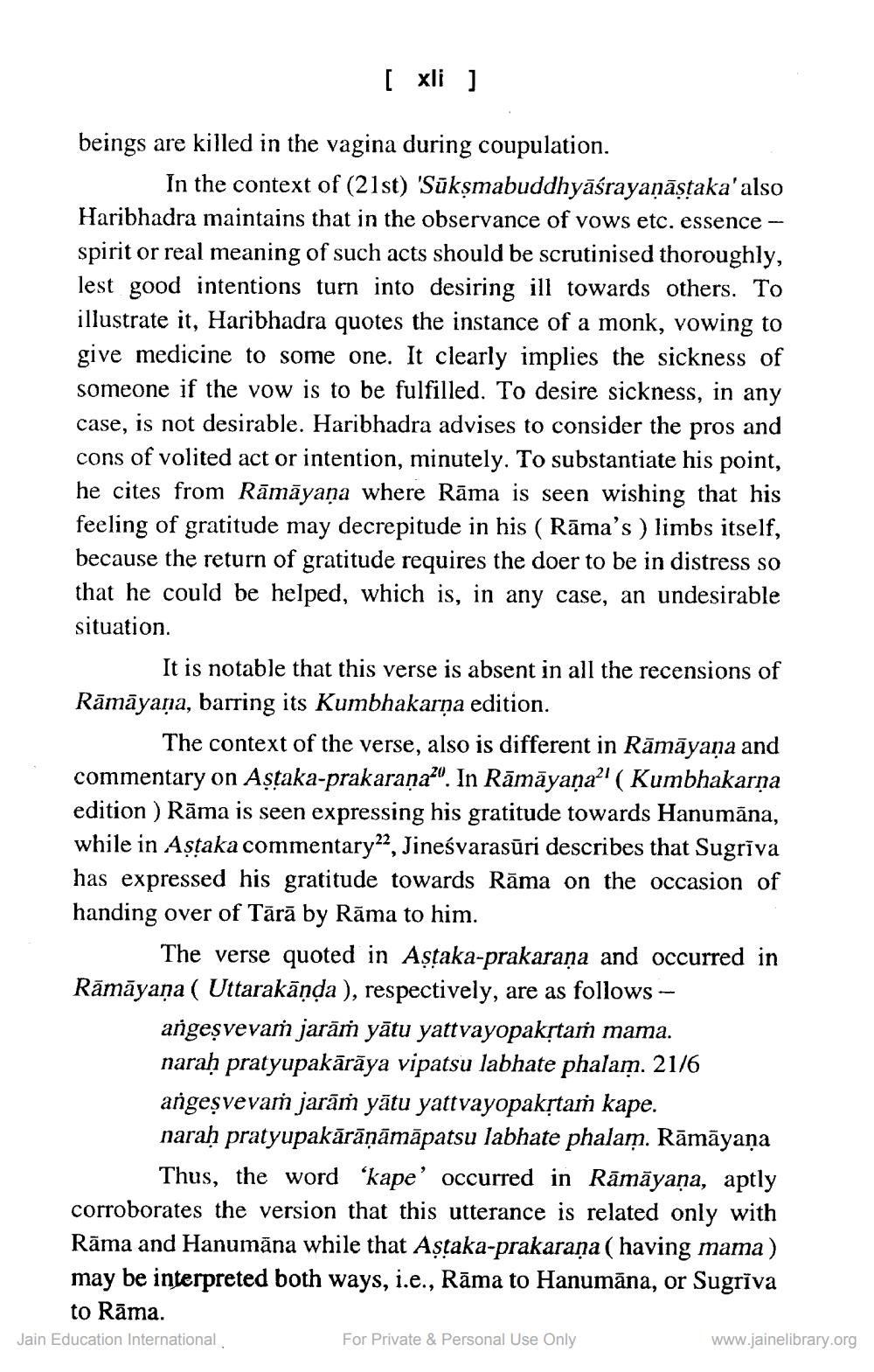________________
[xli ]
beings are killed in the vagina during coupulation.
In the context of (21st) 'Sūkşmabuddhyāśrayaņāstaka'also Haribhadra maintains that in the observance of vows etc. essence -- spirit or real meaning of such acts should be scrutinised thoroughly, lest good intentions turn into desiring ill towards others. To illustrate it, Haribhadra quotes the instance of a monk, vowing to give medicine to some one. It clearly implies the sickness of someone if the vow is to be fulfilled. To desire sickness, in any case, is not desirable. Haribhadra advises to consider the pros and cons of volited act or intention, minutely. To substantiate his point, he cites from Rāmāyaṇa where Rāma is seen wishing that his feeling of gratitude may decrepitude in his (Rāma's ) limbs itself, because the return of gratitude requires the doer to be in distress so that he could be helped, which is, in any case, an undesirable situation.
It is notable that this verse is absent in all the recensions of Rāmāyaṇa, barring its Kumbhakarņa edition.
The context of the verse, also is different in Rāmāyaṇa and commentary on Astaka-prakarana?". In Rāmāyaṇa?' ( Kumbhakarņa edition ) Rāma is seen expressing his gratitude towards Hanumāna, while in Aștaka commentary22, Jineśvarasūri describes that Sugrīva has expressed his gratitude towards Rāma on the occasion of handing over of Tārā by Rāma to him.
The verse quoted in Aştaka-prakaraṇa and occurred in Rāmāyaṇa ( Uttarakānda ), respectively, are as follows –
angesvevam jarāṁ yātu yattvayopakstam mama. naraḥ pratyupakārāya vipatsu labhate phalam. 21/6 angesvevam jarāṁ yātu yattvayopakstaṁ kape. naraḥ pratyupakārāņāmāpatsu labhate phalam. Rāmāyaṇa
Thus, the word “kape' occurred in Rāmāyaṇa, aptly corroborates the version that this utterance is related only with Rāma and Hanumāna while that Astaka-prakaraṇa ( having mama) may be interpreted both ways, i.e., Rāma to Hanumāna, or Sugrīva
to Rāma. Jain Education International For Private & Personal Use Only
www.jainelibrary.org




